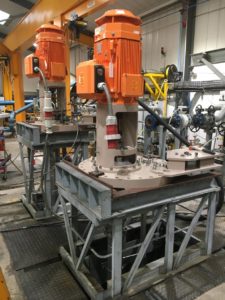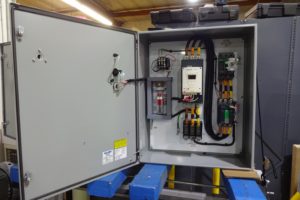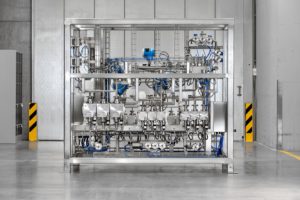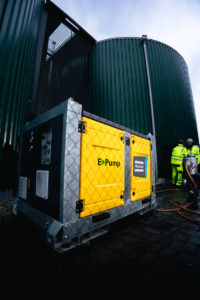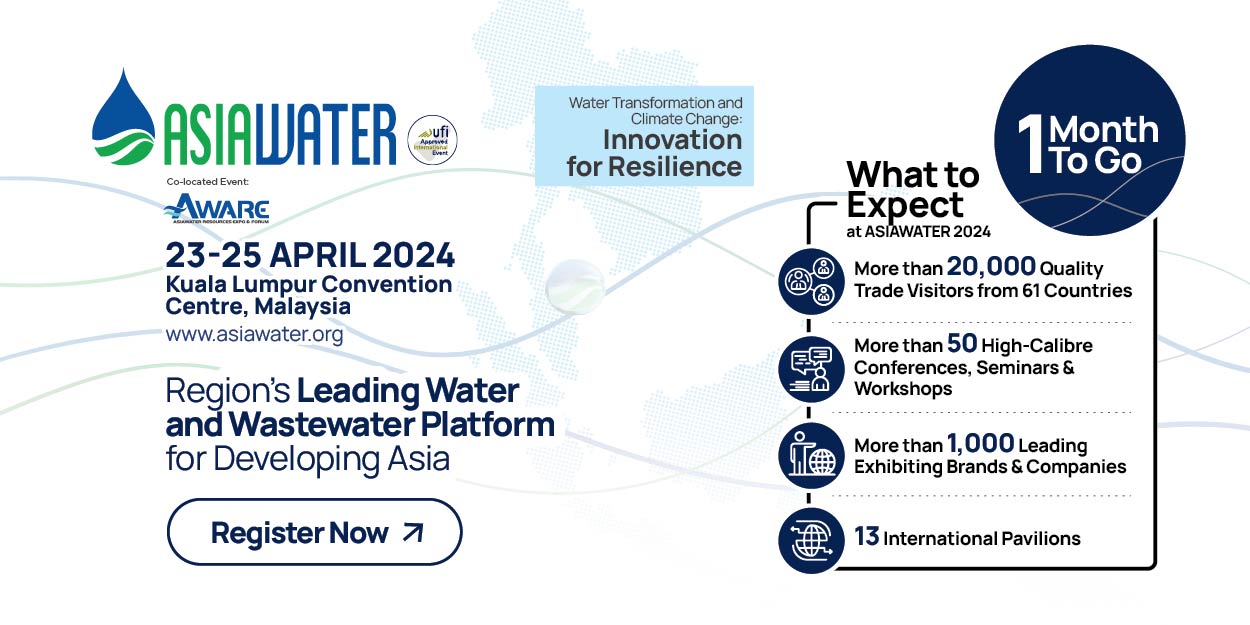Close-coupled stainless steel pumps with regulation systems for chilled ceilings
Researches on the quality of the work environment show that optimum air conditioning helps significantly to improve the creativity and productivity of employees. A fundamental requirement of an efficient air conditioning system is to provide a comfortable thermal climate. This is best ensured by conditioning systems that are integrated in the ceiling.
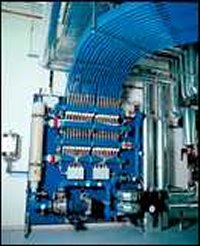
(source: Lowara)
Lowara Deutschland GmbH, Großostheim, a manufacturer of close-coupled stainless steel pumps with integrated HYDROVAR® frequency adjustment system, has been successfully collaborating with Heinrich Nickel GmbH of Betzdorf for several years, to the mutual satisfaction of both companies.
Unlike chilled ceiling systems based on purely convective cooling, with the nickel type chilled ceiling system absorption of the room heat is ensured by convection and radiation in practically equal proportions. The heat, in this case, is transmitted much as it is in the human body. The removal of heat from the environment is not entrusted only to the ventilation system but also, in a large measure, to the chilled ceiling. This enables the volume of the supply air to be significantly reduced.
The nickel type chilled ceiling system consists of a closed cooling circuit separated from the cold generation circuit by a heat exchanger. In addition to the stainless steel centrifugal pumps, only corrosion-resistant materials are used in order to prevent rusting and avoid problems connected with oxygen diffusion.
SHS, CA/CEA and HM series centrifugal pumps with microprocessor-controlled HYDROVAR® frequency regulators ensure constant differential pressure. The software, specially designed for centrifugal pumps, enables additional energy savings thanks to the adaptation of the differential pressure to the friction losses actually occurring in the cooling pipes.
Since no additional complex regulation devices are needed, installation and start up are much easier and quicker, and system maintenance and optimization are more efficient.
The success of similar solutions installed throughout Europe confirms the superiority of this type of system.
About LOWARA
Lowara Srl Montecchio Maggiore, Vicenza, which is part of the ITT Industries group, is a leader in the manufacture of hydraulic pumps and water handling and control systems. It has 900 employees in Europe, 730 operating in Italy. In 2000 its consolidated sales totalled aboutr 150 million dollars, or over 165 million euro.
ITT Industries, Inc. (www.itt.com) supplies advanced technology products and services in key markets including: electronic interconnects and switches; defense communication, opto-electronics, information technology and services; fluid and water management and other specialty products. Headquartered in White Plains, NY, the company generated $4.7 billion in 2001 sales. In addition to the New York Stock Exchange, ITT Industries' common stock is traded on the Midwest, Pacific, London, Frankfurt and Paris exchanges.
Source: Xylem Inc.

